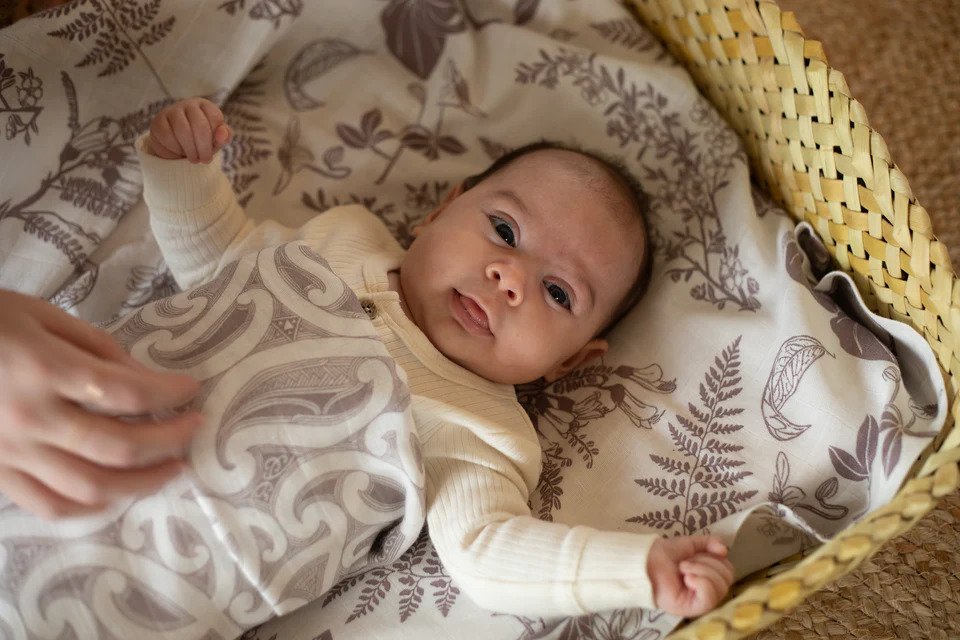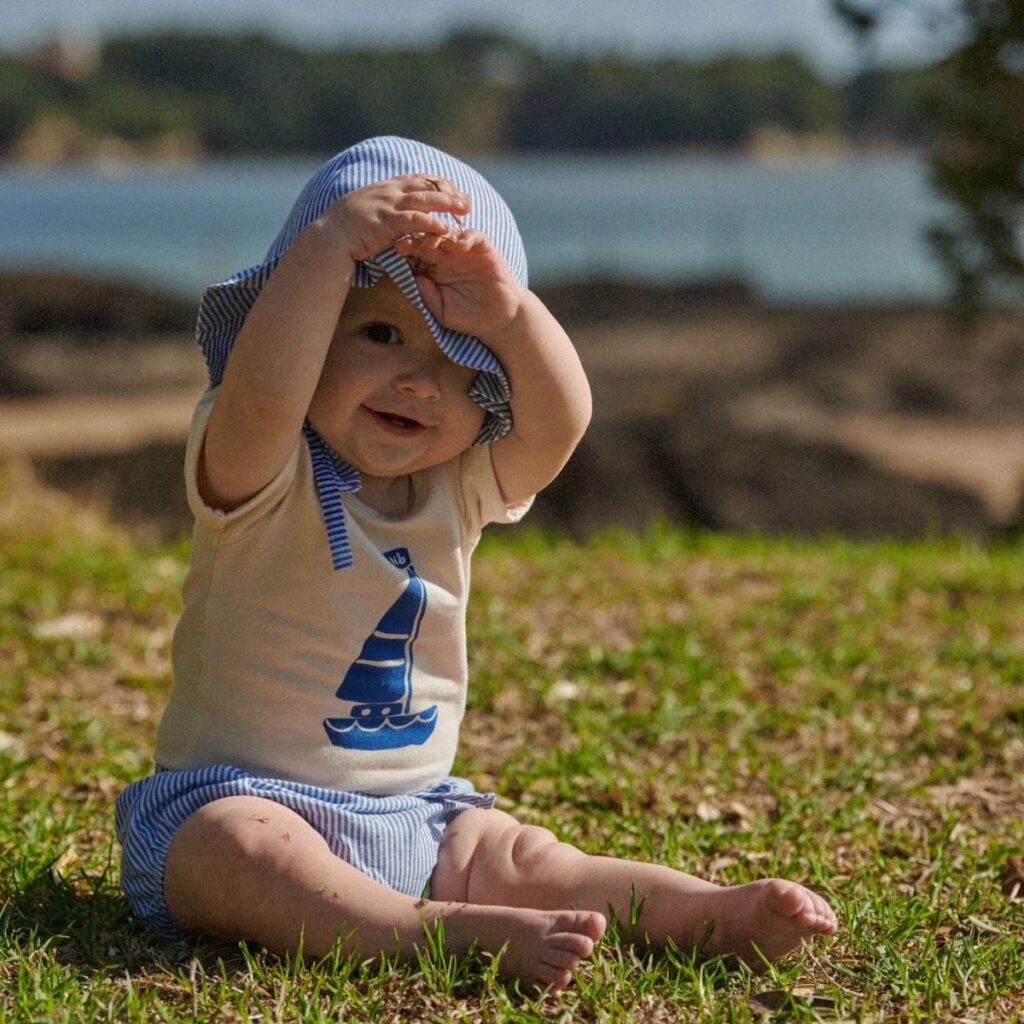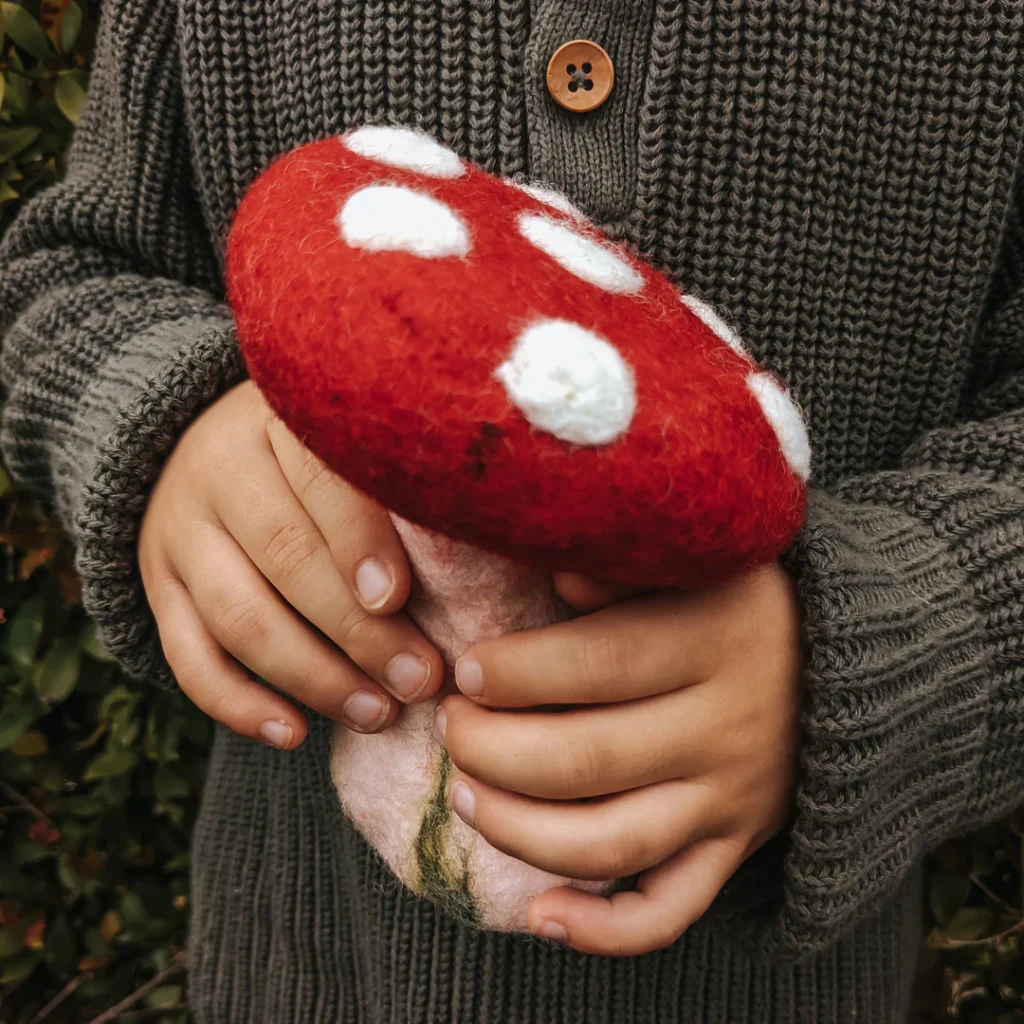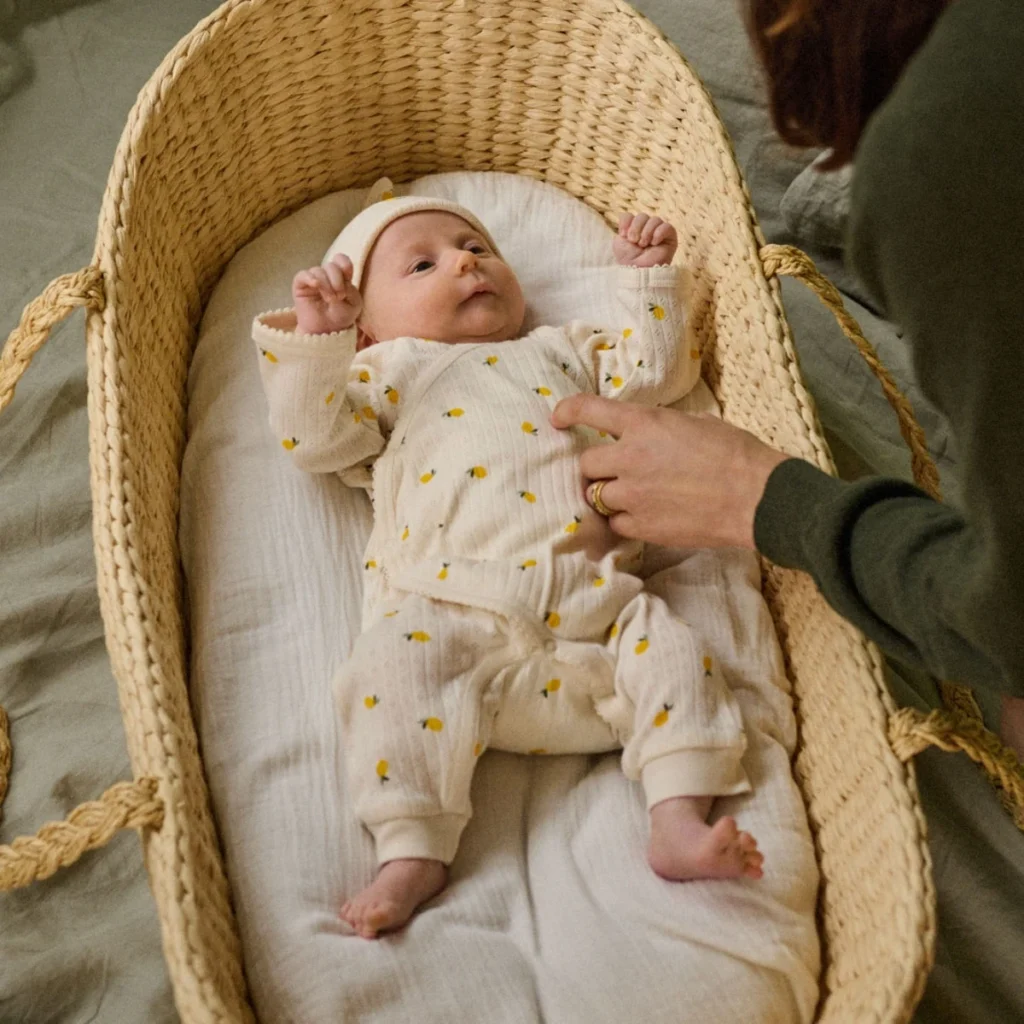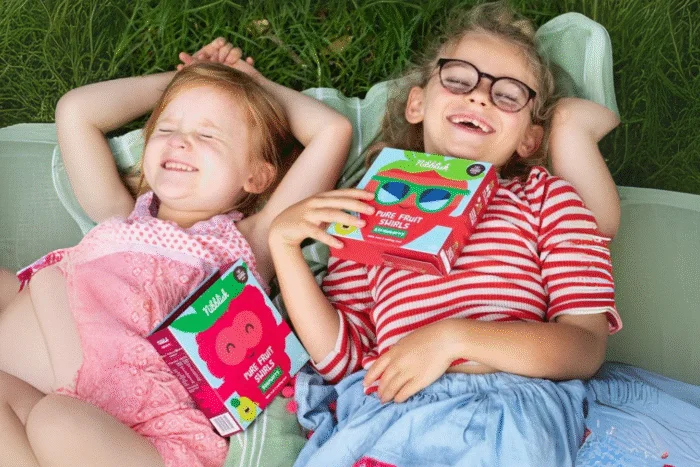All parents want to take the best care of their babies and children. Today a growing number of parents are seeking out ethically sourced products to do just that, reflecting not only a commitment to the well-being of our children but also a deep concern for the planet and the global community.
For parents, ethical products offer reassurance that our children are nurtured in an environment free from harmful chemicals, exploitative labour practices, and environmental degradation. They express our values of love, nurturing and care, and our aspirations for all our children’s futures.
Kristy, Founder of Aho Creative, was one of those parents. To make her gorgeous Maori-themed pēpi (baby) wraps, she sources directly from cotton farmers in the ancestral village of her husband in the foothills of the Himalayas. Kristy’s passion was to create beautiful and practical wraps that affirm indigenous identities, have a positive environmental impact and whakamana (empower) the communities that make them. Watch her inspiring kaupapa (philosophy) here.
Fabrics for Babies.
It is often the birth of a baby that inspires change, as it did for Jacob and Georgia, Founders of Nature Baby, who were inspired to find natural and organic alternatives for their children to wear, rather than resorting to mainstream products that were mostly synthetic or unsustainable.
“At Nature Baby, our philosophy is that our clothing be made in a way that treats all people that take part in the process fairly, from the farmers and millers through to the cutters and makers, supporting localized regions, their families and their development.”
Ethical baby and child clothing brands like Nature Baby and Burrow&Be all use GOTS organic cotton and non-toxic dyes, safeguarding children from skin irritations and allergies. All insist on sustainable farming practices and transparent supply chains. They regularly visit the factories where their products are made so they can be sure they are creating products that are gentle on children, cotton farmers, garment works and the planet alike.
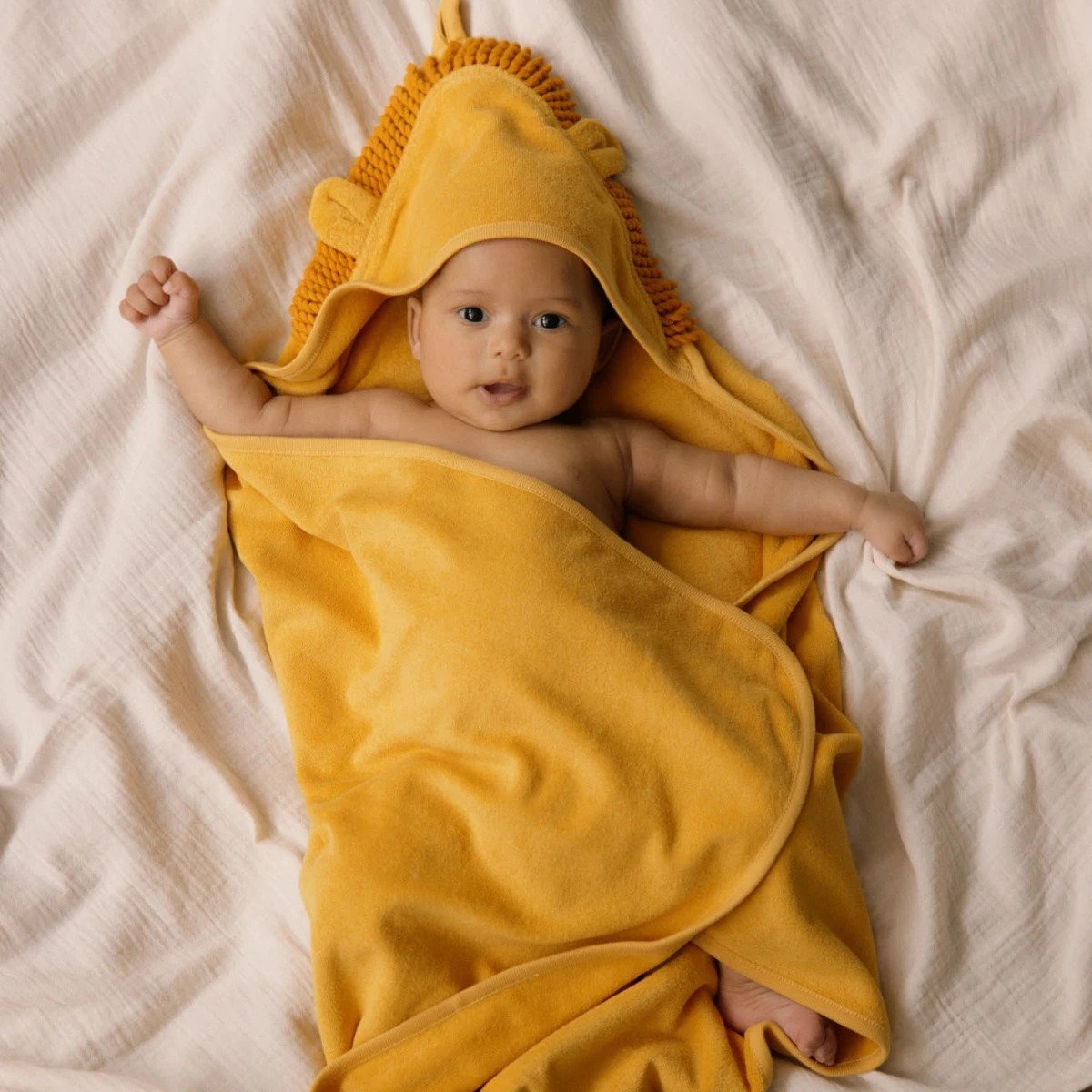
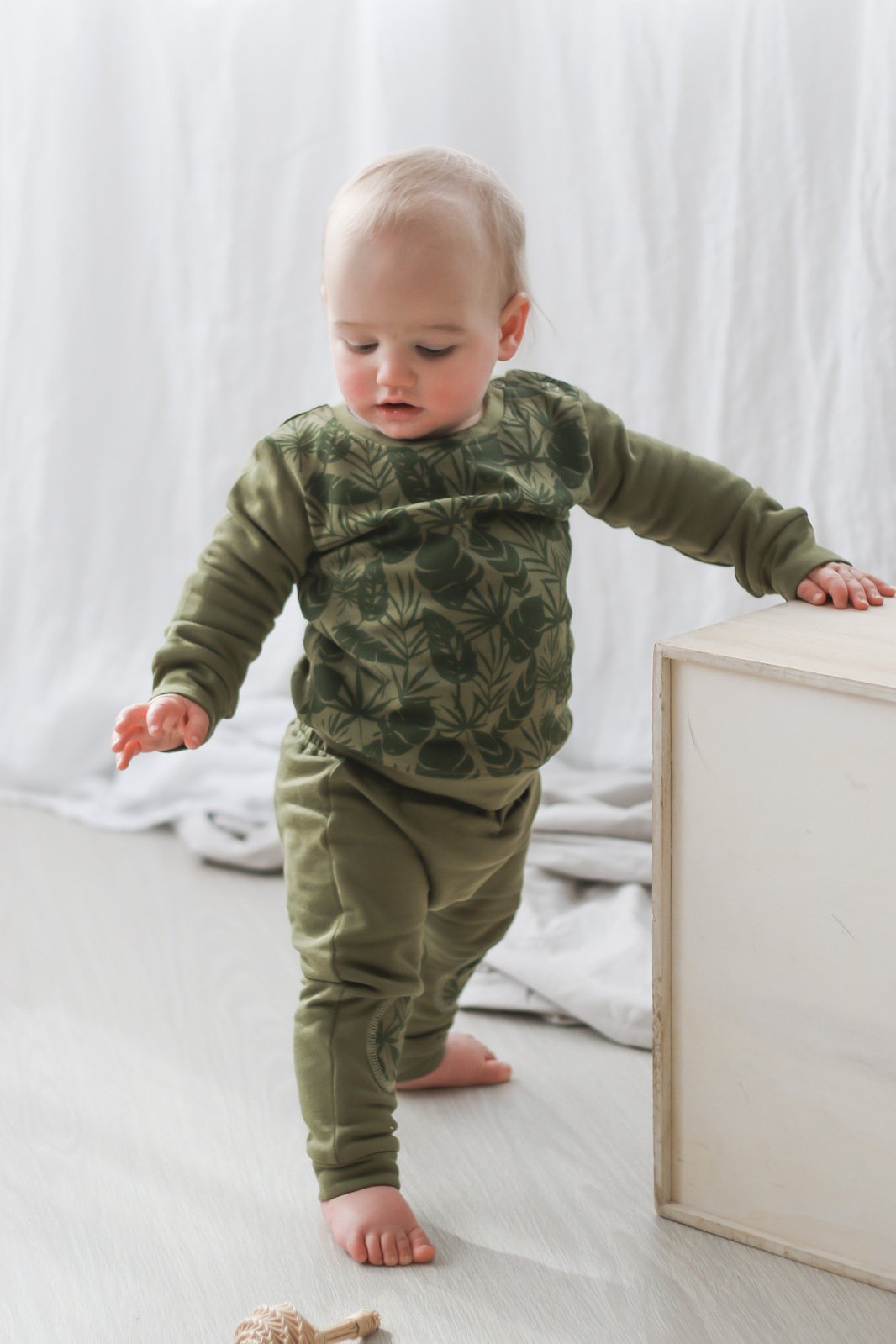
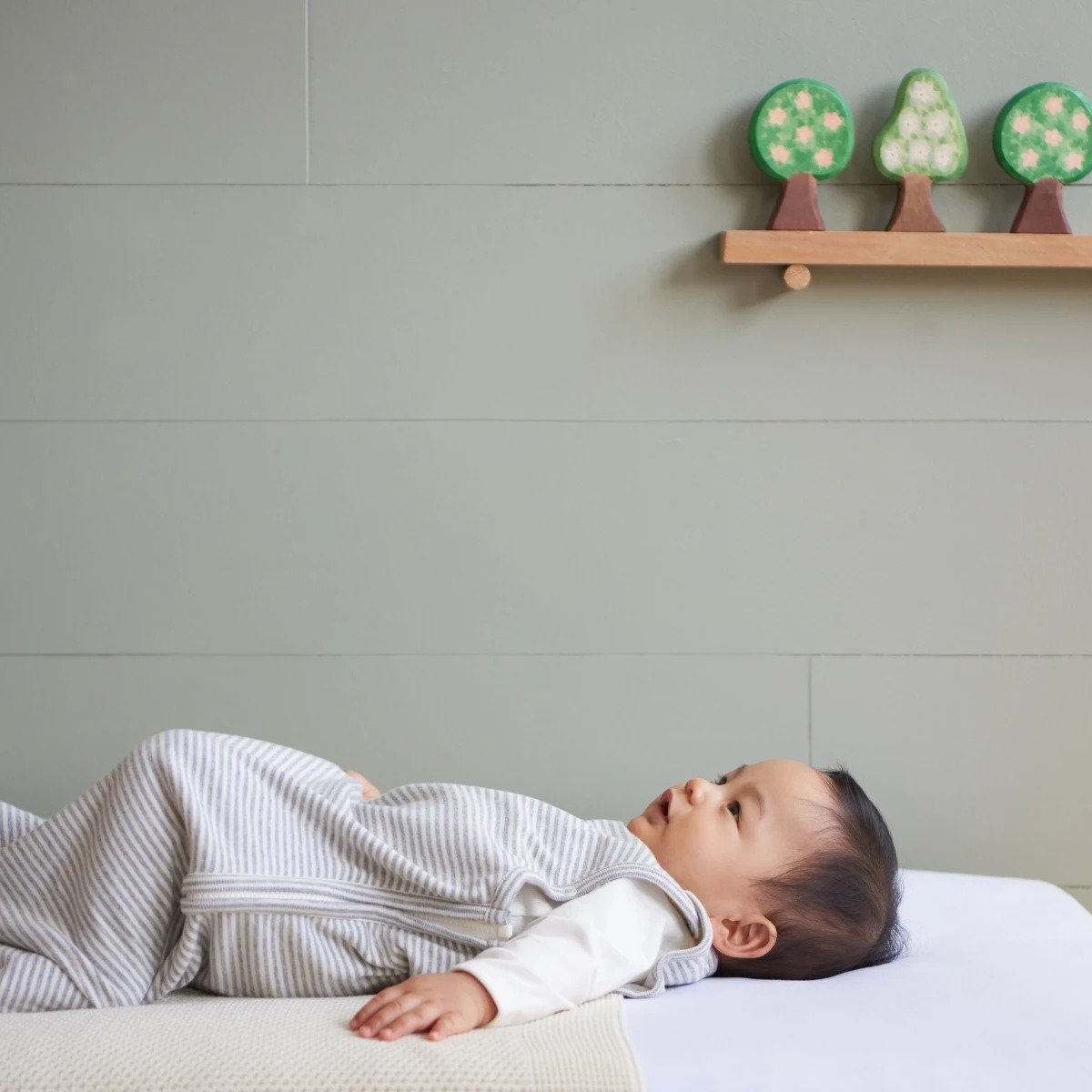
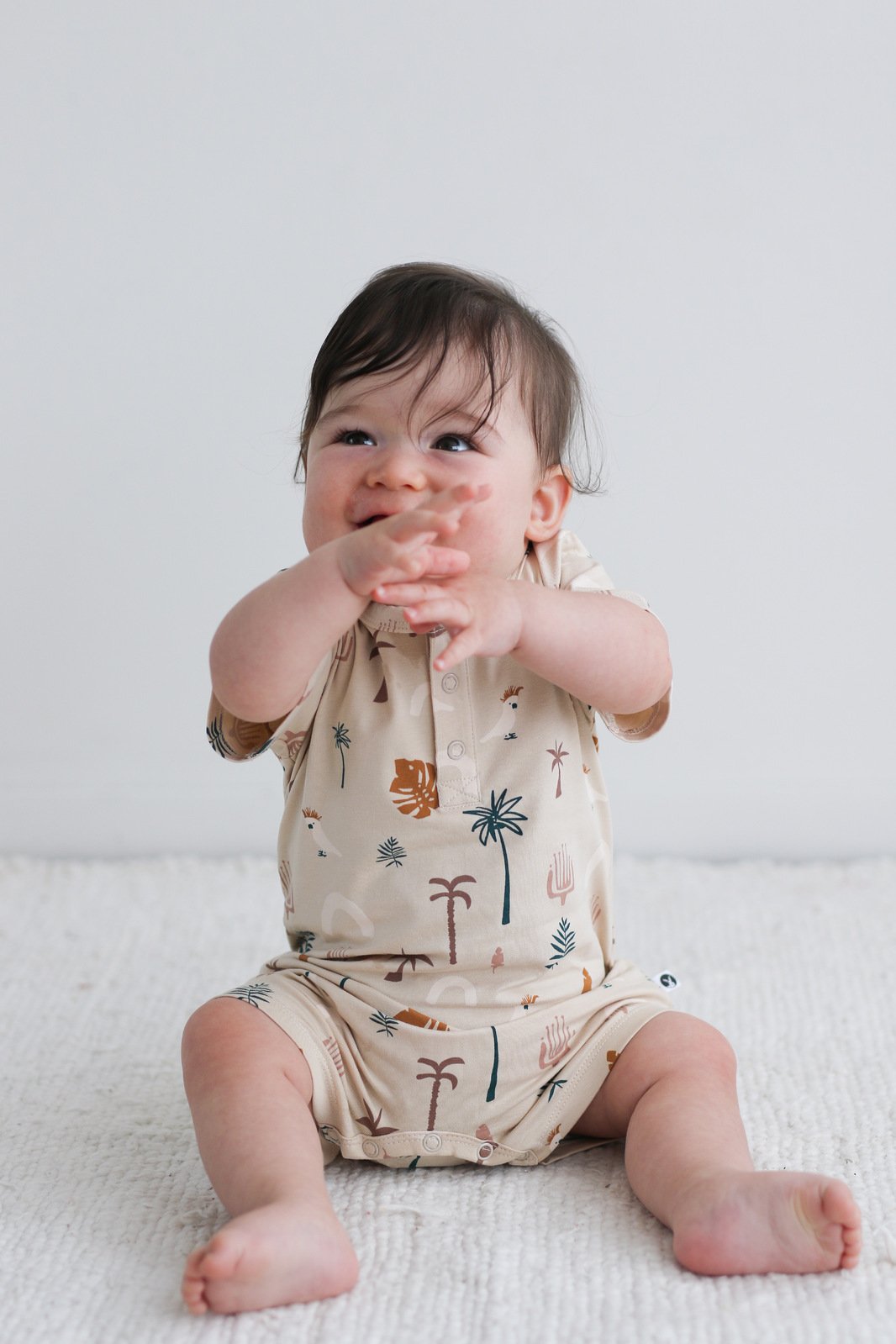
Solidarity with Mothers Everywhere.
Ethical sourcing is really a statement of solidarity with mothers everywhere. Above Rubies, for example, specialize in the cutest crocheted toys created by vulnerable women artisans in the Philippines, giving them a stable living wage, dignity and independence. Founder Angela says “The personal transformation and confidence speaks volumes. We see women with hope who can see a bright future for themselves and for their children.”
Enabling artisans to provide for their families is also the focus of Fairplay. Founder Mandy ethically sources toys made by skilled artisans from around the world, all designed for mindful play. Mandy also says “Fairplay was born out of a passion to find an alternative to the mass-produced plastic toys that dominate the market.” Her toys, made from natural materials, not only foster children’s imagination and creativity but help to reduce the environmental damage caused by plastics.
Another example is Ethos&Co’s organic baby balm. 100% natural, it is enriched with fermented coconut oil, which is anti-inflammatory and antimicrobial, caring for baby’s delicate skin barrier. Ethos&Co directly source their coconut oil from rural families in Cambodia who typically own around 10-15 coconut trees. The women who make the coconut oil are paid fairly. This makes up around 40% of their household income, helping pay for basic needs such as their children’s education. Cambodia has made significant progress reducing poverty, but half of Cambodians live on less than US $4.15 per day, one third don’t have access to clean water and 22% of under five year olds are chronically under-nourished.
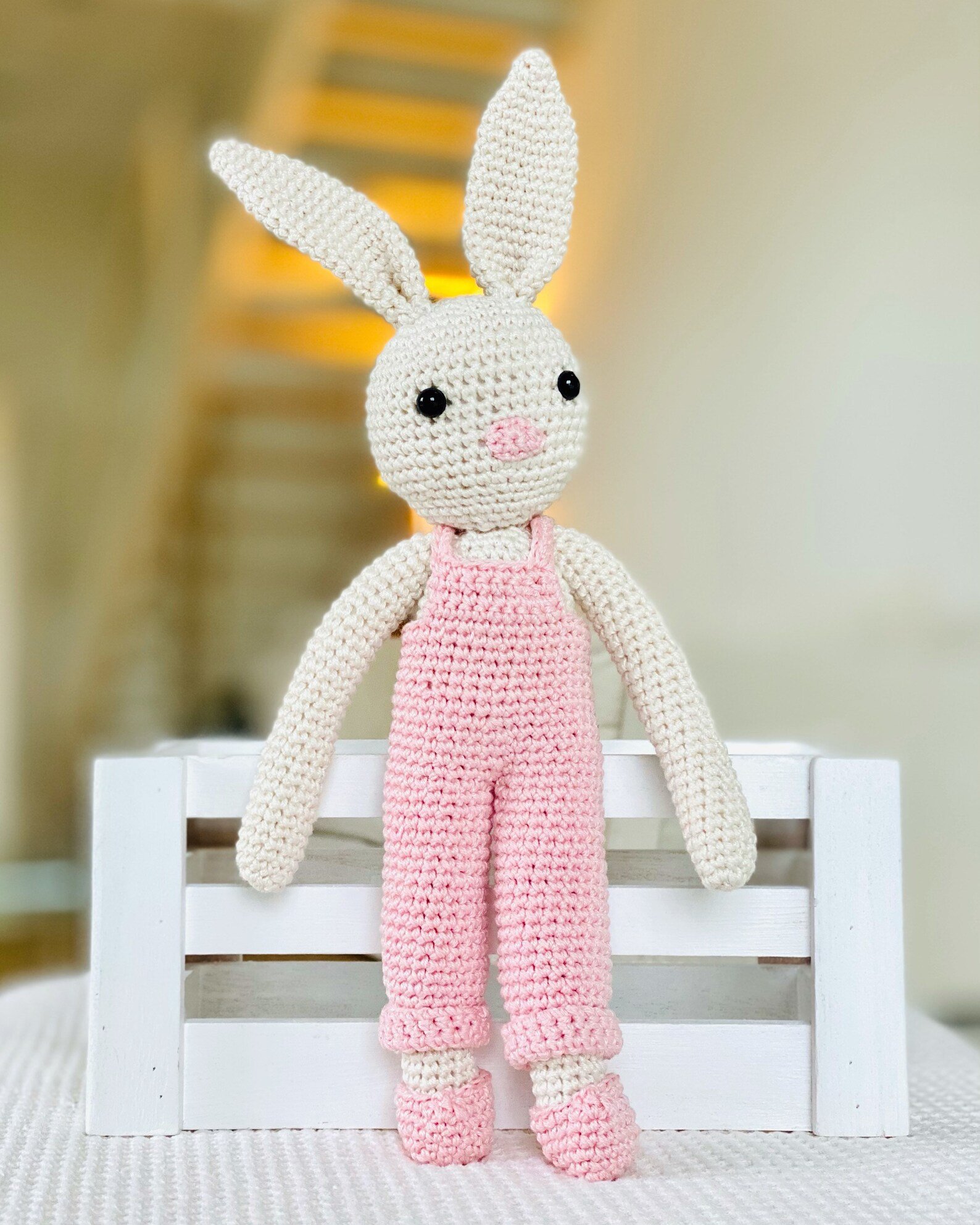
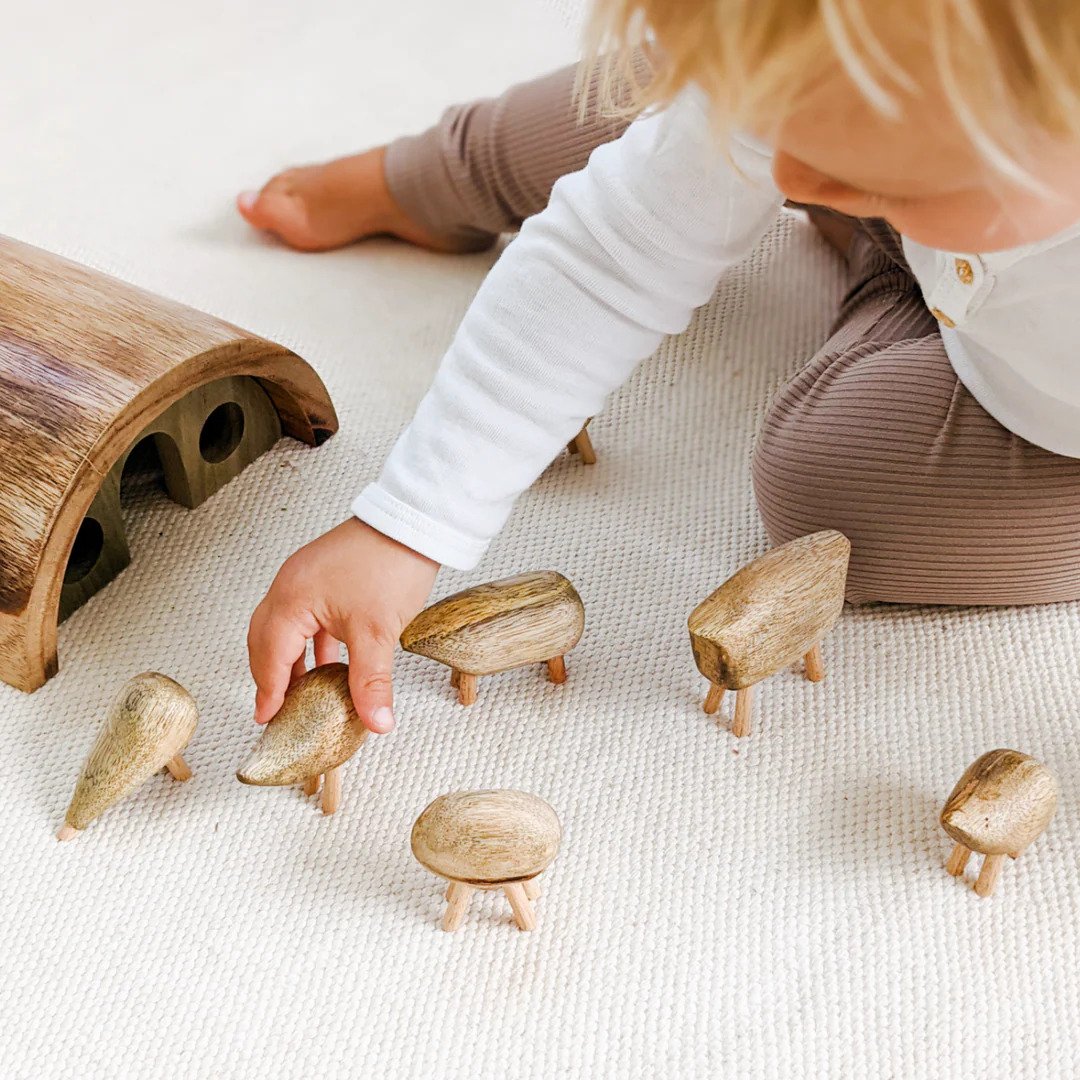
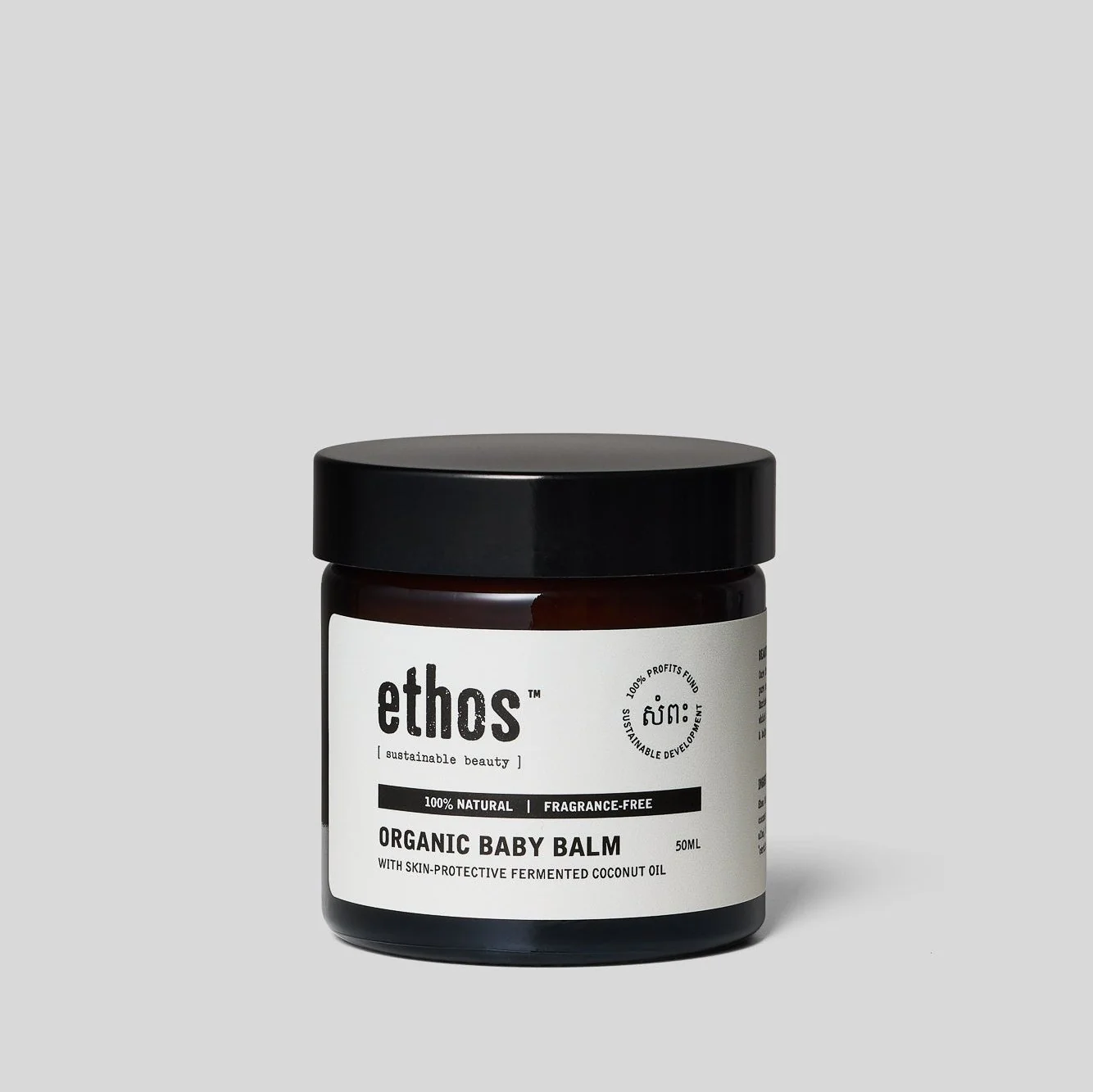
Impact.
Parents should not underestimate their power as conscious consumers to demand change. Due to parental demand, almost all the baby food found in our supermarket shelves now is organic. Online communities and platforms have become powerful tools for parents to share recommendations for ethical brands and collectively influence trends. Influencers and directories such as fair&good amplify the movement, creating a ripple effect of conscious consumption. Parents can be warriors for social justice and advocates for human rights, all while reducing ecological harm and caring for their children.
Availability.
There are challenges such as higher costs and limited availability. Supermarkets are increasingly responsive to this demand, especially for organic baby food. The fair&good ethical directory is a good place to start for finding ethical brands and learning their stories. It now has a new category ‘In your Supermarket’ making it even easier to find ethical brands, well… in your supermarket.
Sadly, many toys are still made of plastic so toy libraries found in many neighbourhoods now are an ethical life-saver. Second-hand marketplaces also provide affordable access to pre-loved clothing and toys. Also see fair&good’s new category ‘Ethical on a budget’.
We pass on our values to our children by what we do and what we buy. Parents who choose ethically sourced products are not just caring for their children—they are nurturing values of justice, kindness, responsibility, sustainability and global awareness in their children. From organic baby food to clothes made with GOTS cotton to fair trade wooden toys, these choices embody the love of parents for their children.
And by teaching children the importance and power of their choices from an early age, we are empowering them to grow into thoughtful and responsible adults. By embracing ethically sourced products, parents are also creating a legacy of care that extends far beyond their immediate families, touching lives across the globe and safeguarding the future for generations to come.

